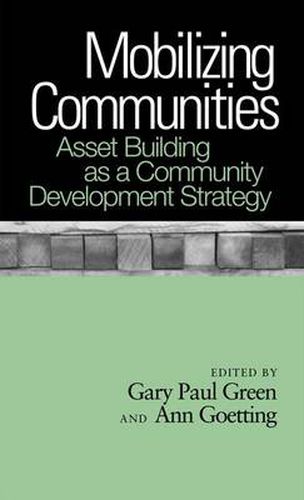Readings Newsletter
Become a Readings Member to make your shopping experience even easier.
Sign in or sign up for free!
You’re not far away from qualifying for FREE standard shipping within Australia
You’ve qualified for FREE standard shipping within Australia
The cart is loading…






Focusing on San Diego in the post-Civil Rights era, Linda Trinh Vo examines the ways Asian Americans drew together despite many differences within the group to construct a community that supports a variety of social, economic, political, and cultural organizations. Using historical materials, ethnographic fieldwork, and interviews, Linda Trinh Vo traces the political strategies that enable Asian Americans to bridge ethnicity, generation, gender, language, and class differences, among others. She demonstrates that mobilization is not a smooth, linear process and shows how the struggle over ideologies, political strategies, and resources affects the development of community organizations. Vo also analyzes how Asian Americans construct their relationship with Asia and how they forge relationships with other racialized communities of color. Vo argues that the situation in San Diego illuminates other localities across the country where Asians face challenges trying to organize, find sufficient resources, create leaders, and define strategies.Author note: Linda Trinh Vo is Associate Professor of Asian American Studies at the University of California, Irvine; she is the co-editor with Rick Bonus of Contemporary Asian American Communities: Intersections and Divergences (Temple). She also co-edited with Marian Sciachitano Asian American Women: The Frontiers Reader and co-edited with Gilbert Gonzalez, Raul Fernandez, Vivian Price, and David Smith Labor Versus Empire: Race, Gender, and Migration.
$9.00 standard shipping within Australia
FREE standard shipping within Australia for orders over $100.00
Express & International shipping calculated at checkout
Focusing on San Diego in the post-Civil Rights era, Linda Trinh Vo examines the ways Asian Americans drew together despite many differences within the group to construct a community that supports a variety of social, economic, political, and cultural organizations. Using historical materials, ethnographic fieldwork, and interviews, Linda Trinh Vo traces the political strategies that enable Asian Americans to bridge ethnicity, generation, gender, language, and class differences, among others. She demonstrates that mobilization is not a smooth, linear process and shows how the struggle over ideologies, political strategies, and resources affects the development of community organizations. Vo also analyzes how Asian Americans construct their relationship with Asia and how they forge relationships with other racialized communities of color. Vo argues that the situation in San Diego illuminates other localities across the country where Asians face challenges trying to organize, find sufficient resources, create leaders, and define strategies.Author note: Linda Trinh Vo is Associate Professor of Asian American Studies at the University of California, Irvine; she is the co-editor with Rick Bonus of Contemporary Asian American Communities: Intersections and Divergences (Temple). She also co-edited with Marian Sciachitano Asian American Women: The Frontiers Reader and co-edited with Gilbert Gonzalez, Raul Fernandez, Vivian Price, and David Smith Labor Versus Empire: Race, Gender, and Migration.